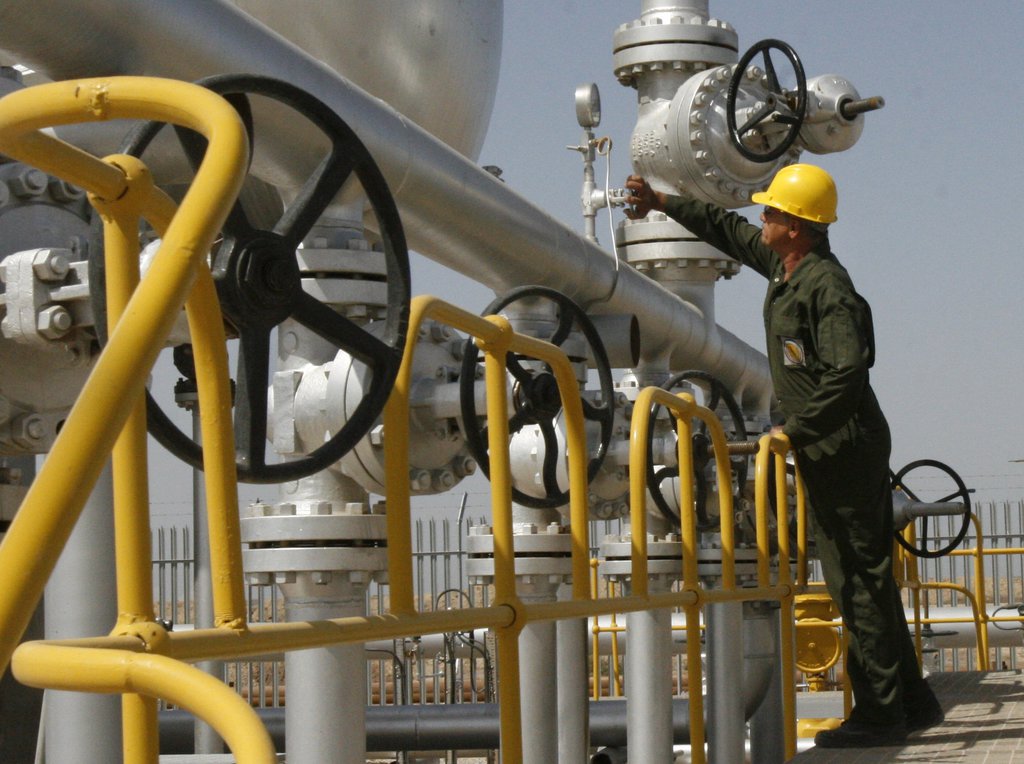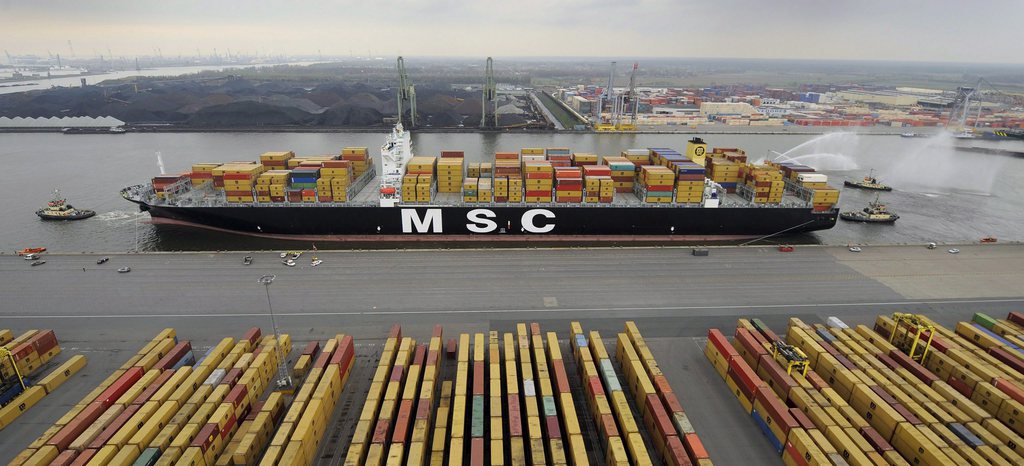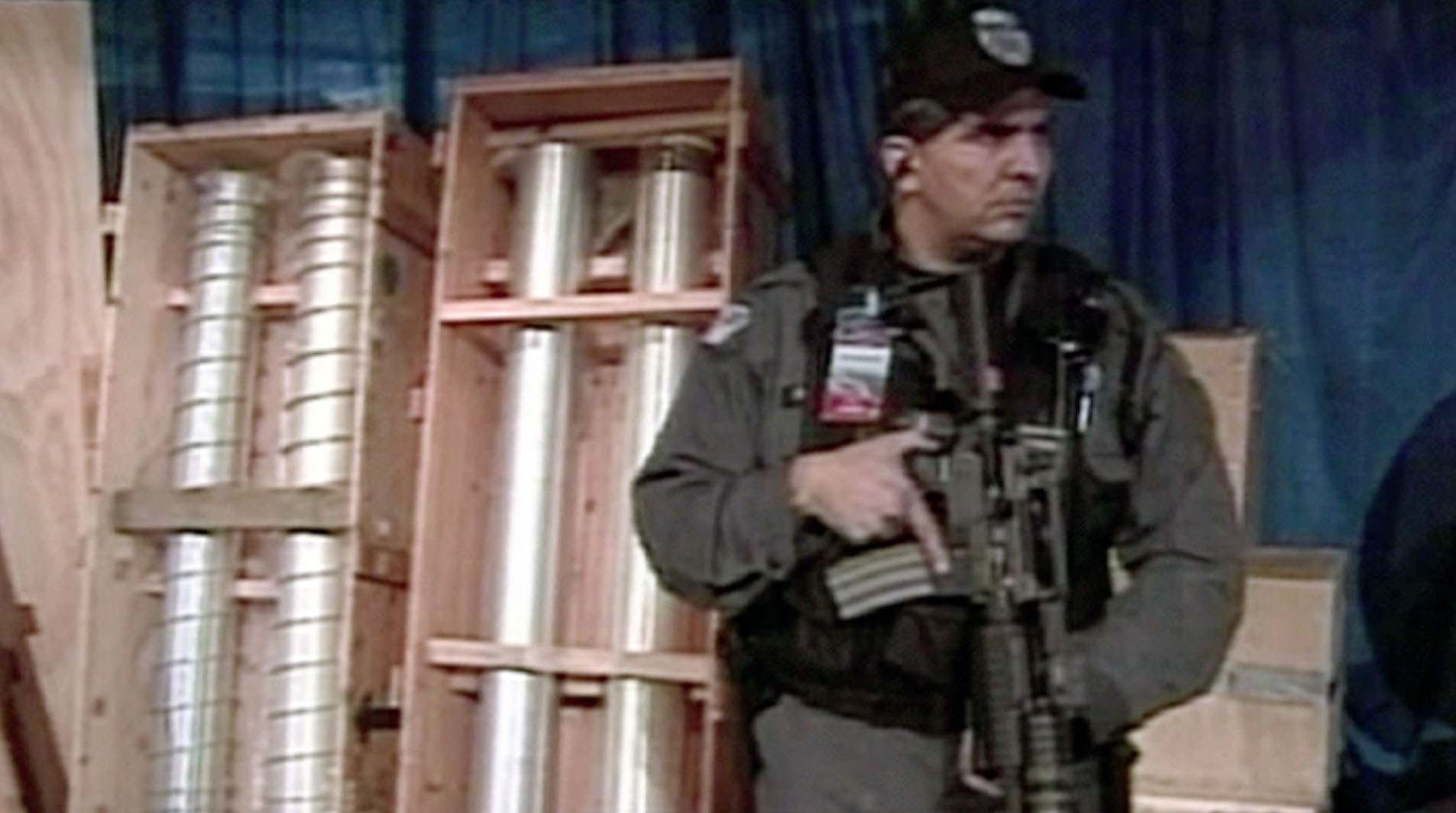Vitol oil trade spotlights Swiss sanctions

Swiss-based oil trader Vitol has bought and sold Iranian oil despite a Western ban, a new report claims. Vitol says it has stopped buying oil products from Tehran but the affair has put the spotlight on Switzerland’s sanction regime.
Vitol, the world’s largest oil trader, reportedly bought two million barrels of fuel oil from Iran in August 2012 and offered it to buyers in China, according to a report by Reuters published on Wednesday. Before offering the oil to the Chinese traders, the company allegedly blended it with fuel oil from Europe, concealing its origin. This occurred after a July 1 embargo deadline put in place by the European Union.
Vitol did not comment on this specific incident. However, a Vitol spokesperson told swissinfo.ch that a Vitol subsidiary company, based in Bahrain, bought a shipment containing oil of Iranian origin in July 2012.
“Vitol Group companies no longer purchase any product of Iranian origin,” the spokesperson added.
Vitol says it stopped all sales of refined product to Iran and all purchases of crude oil from Iran before the July 1 EU embargo deadline and is “in compliance with all applicable international laws and regulations governing trade with Iran”.
Legally the oil trader is not obliged to comply with the EU ban on oil trade with Iran or with the longstanding US sanctions on Iranian oil because Vitol is based in Switzerland, which in July decided against an outright ban on trading Iranian oil, citing “foreign policy reasons”.
Marie Avet, spokesperson for the State Secretariat for Economic Affairs (Seco), said Vitol had complied with Swiss laws.
“The firm confirmed that neither Vitol SA nor its Geneva headquarters had been involved in this business and that it had been carried out by a sister company in Bahrain,” she told swissinfo.ch.
Swiss laws do not apply to the July 2012 trade by Vitol’s Bahraini subsidiary because that company is not itself based in Switzerland, she said, adding that the subsidiary’s actions are also not accountable to EU laws.
While stopping short of an outright ban on trading Iranian oil in July, Switzerland introduced a new set of regulations requiring oil traders to declare their Iran-related activities via specific forms available on the Seco website.
Oil host
Switzerland stopped importing crude oil from Iran six years ago, but approximately one third of the world’s oil deals are brokered by five Swiss-based commodity-trading firms – Glencore, Gunvor, Vitol, Trafigura and Mercuria. The country also hosts a branch of the National Iranian Oil Company, the Naftiran Intertrade Company (Nico).
Switzerland has represented US interest in Tehran for more than 30 years. As part of its good offices, Switzerland has also tried to mediate unofficially in the long-standing dispute over Iran’s disputed nuclear programme.
The US ambassador to Switzerland, Donald Beyer, in June reportedly said that the US was disappointed that the traditionally neutral country had not adopted the EU embargo, adding that he did not expect Swiss authorities to permit the evasion of sanctions.
Switzerland is not a member of the EU, but it has close economic ties with the 27-nation bloc.
Earlier this month the US Treasury Department’s top official responsible for terrorism financing and economic sanctions, David Cohen, visited Switzerland to discuss newly expanded US sanctions.
He briefed senior officials and private sector leaders on a new executive order, which expands US sanctions aimed at the Iranian Central Bank and Iran’s petrochemical and petroleum sector. The order, which US President Barack Obama signed in July, targets payments or other material support to the National Iranian Oil Company and Nico.
Last year, Vitol’s revenue increased five-fold since 2004 to $297 billion (SFr279 billion). Fuel oil makes up a small part of the company’s revenue – just $24 billion last year – with crude oil and other refined petroleum products comprising the bulk of its income.
European governments are considering a new round of sanctions against Iran over its nuclear programme that could be implemented in October and substantially curtail trade with the Islamic Republic and hit its banking industry, Reuters reported on September 26.
A new push is underway to persuade Tehran to scale back the enrichment of uranium, believed to be part of Tehran’s programme to build a nuclear bomb. Iran denies any military intentions and says it seeks to increase energy supplies with nuclear power.
In a joint letter, foreign ministers of France, Germany and Britain asked their EU counterparts to agree on new measures by their next policy meeting on October 15.

In compliance with the JTI standards
More: SWI swissinfo.ch certified by the Journalism Trust Initiative






You can find an overview of ongoing debates with our journalists here. Please join us!
If you want to start a conversation about a topic raised in this article or want to report factual errors, email us at english@swissinfo.ch.